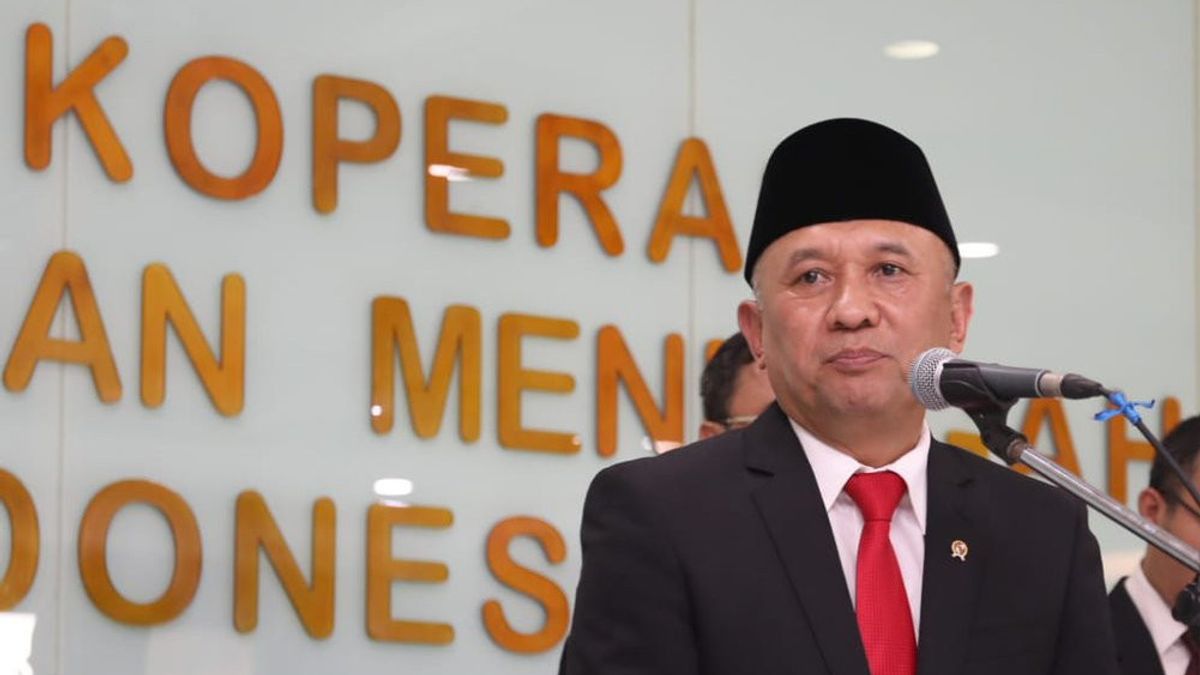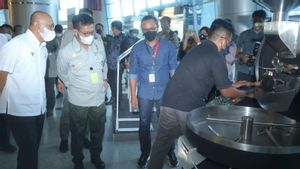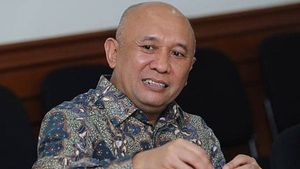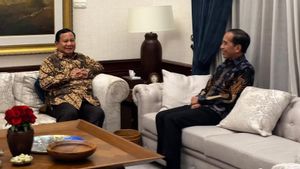JAKARTA - President Joko Widodo (Jokowi) has determined that the target for spending on domestic products (PDN) and micro, small, and medium enterprises (MSMEs) is IDR 400 trillion for the 2022 period. To achieve this target requires not only commitment but also implementation of a contract. The goal is to accelerate the realization of product purchases.
Minister of Cooperatives and Small and Medium Enterprises, Teten Masduki said, to achieve the target given by Jokowi, what is needed is not only a commitment, but an implementation, or contract.
Therefore, Teten said that his party also held a Showcase and Business Matching II Shopping for Government Goods/Services for Domestic Products. This event is expected to accelerate the realization of the procurement of goods and services.
Teten explained, that at the Showcase and Business Matching II event at the Jakarta Convention Center on April 25-26, 2022, there will be an exhibition consisting of medical equipment products, agricultural equipment, heavy equipment, technical services, information technology, and the creative economy. The aim is to show the government and the private sector that MSMEs and cooperatives have been able to provide quality technology products.
"The trust of the government and SOEs in domestic products will encourage the confidence of the business world, whose potential demand is much higher. Moreover, there is a lot of demand from the private sector for producers participating in the thematic exhibition", he said in Jakarta, Monday, April 25.
Furthermore, Teten also ensures that one million MSME products will be included in the e-catalog this year as well. This is in line with the strengthening of Presidential Instruction No. 2 of 2022.
Currently, said Teten, the general procurement of goods and services for RUP tagging PDN has reached IDR 483.2 trillion. However, the realization has only reached IDR 96.2 trillion.
"The next target is the on-boarding of MSME products in the e-catalog. This policy is supported by human resource assistance programs, financing support, partnership certification, and others that support a conducive ecosystem for MSMEs", explained Teten.
VOIR éGALEMENT:
He hopes that all ministries/agencies (KL) and local governments can also encourage providers, namely MSMEs and cooperatives so that their products enter sectoral e-catalogs and local catalogs with a minimum target of 1,000 business actors per district/city. This is by regional needs.
In addition, said Teten, ministries, and institutions also guide the provider ecosystem by implementing good governance and compiling a road map for import substitution.
"Like the example in the Ministry of Health. That is just an example, assisting manufacturers of medical devices to meet standards and associations to make a road map for import substitution of their medical devices", said Teten.
Then, the Ministry of Public Works and Housing (PUPR) also conducted the concept of business meetings for large projects, namely the commitment contract of the winning bidder in using domestic products of MSMEs and cooperatives with transparent implementation.
For your information, Business Matching I which was held in Nusa Dua Bali on March 22-24, 2022 resulted in the government's commitment to PDN spending reaching IDR 214.1 trillion. There are 15 ministries/agencies that are listed as the largest contributors to the commitment to spending on MSME goods and services on the dashboard of the Ministry of Industry.
Among them are the Ministry of Public Works and Housing (PUPR), Ministry of Defense, Ministry of Health, Ministry of Communications and Informatics, Ministry of Transportation, Ministry of Religion, Indonesian Police, Ministry of Law and Human Rights, Ministry of Education and Culture, Ministry of Finance, Ministry of Maritime Affairs and Fisheries, Ministry of Home Affairs, Ministry of Industry, Ministry of Cooperative SMEs, and Central Bureau of Statistics.
For the provincial government, DKI Jakarta is listed as the largest contributor to its PDN spending commitments. Followed by East Java, Banten, Nanggroe Aceh Darussalam, Central Java, North Sumatra, DI Yogyakarta, West Papua, East Kalimantan, South Sulawesi, Papua, Southeast Sulawesi, Lampung, South Sumatra and Bali.
Meanwhile, the Regency/City levels sequentially are Bojonegoro Regency, Makassar City, Surabaya City, Mimika Regency, Sidoarjo Regency, Tangerang Regency, Jember Regency, South Tangerang City, Penukal Abab Ilir Regency, Kapuas Regency, Manado City, Semarang City, Pasuruan Regency, Regency Badung, and Bone Regency.
Business Matching is considered important because it dilutes several obstacles that cause domestic products to not get a market from the budget of ministries/agencies, SOEs, and local governments.
The English, Chinese, Japanese, Arabic, and French versions are automatically generated by the AI. So there may still be inaccuracies in translating, please always see Indonesian as our main language. (system supported by DigitalSiber.id)












